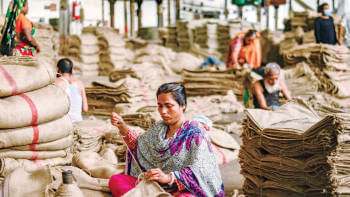Constant comparison and how it cripples creativity and academic attainment

While reading I Am Not Jessica Chen by Ann Liang a few months ago, it struck a chord with me. It's about a young girl who compares herself to her seemingly perfect cousin because everybody else in her family does the same. The comparisons between the two girls resonated a lot with me, and I know it will resonate with a lot of others as well. It took me back to the countless conversations with my friends where we would rant about how our relatives would often compare us to children who fit their idea of a "good kid".
When I was younger, I had to deal with such comparisons a lot, but it was rarely done by my parents. Instead, my relatives were the ones who would do so. I remember this one incident when I was ten. My English proficiency was weak at the time, and I didn't know the meaning of the word 'skeleton'. My uncle, without missing a single beat, said, "Your cousin already knows the word; you should also know it by now."
It was a joke and too minor an incident for me to remember. But I remembered how insignificant and stupid I felt not to remember or know that one word. That was the first time that I realised that I was being forced to run a race where I wasn't a willing participant, and I felt that I was losing every time.
This, alongside several other incidents, had prompted me to lash out and seek academic validation, despite not really liking the subjects that I chose for my O and A levels, which led to greater disappointments. Every time I got decent grades, someone would still ask me how my classmates did. This would make me spiral again.
Cultural backdrop of comparison
Bangladesh can be considered a collectivist society according to an article by Prothom Alo in 2018, where Bangladeshi culture was analysed by the 6-D model—used in cross-cultural analysis— proposed by Geert Hofstede. Although considered outdated and static by many, there is one thing to note here: The score for individualism is very low, meaning that our individual identity is intertwined with our communities.
In Bangladesh, a child's success is often a reflection of their family's upbringing, which boosts their social honour. Moreover, families often fear the judgement of relatives, often avoiding confrontation to maintain social harmony, something that is highly prioritised in collectivist societies. Our sense of self is also interdependent, meaning that one's failure doesn't just affect one personally, but one's family as well.
This explains the comparison between children, as our perspectives lean more towards interpersonal relations, where we see other people as motivators. Parents and relatives often compare children to motivate them, as it was how things were done in their times, adhering to the collectivist nature of conforming to social norms. Factors like lack of parental education and mental health awareness influence this, too. They usually mean well, but it just does the opposite at times.
However, it is also very important to note that not every Bangladeshi sees themselves through collectivist lenses or sees comparison as a motivational tool.
Consequences of comparison
Research conducted in July 2024 confirmed a strong positive correlation between academic stress and parental expectations/pressure in high school students, often manifesting as undue comparisons with peers or siblings.
An article by Dhaka Tribune published in July 2025 grapples with this correlation with Bangladeshi children, where it was stated by many children that they felt unworthy and demotivated due to constant comparison.
A nationwide survey was also carried out in 2023, and its findings were published in the National Library of Medicine (an official website of the US government) to understand the psychosocial health of high schoolers during the Covid-19 pandemic. The title of the research was "Psychosocial health of school-going adolescents during the COVID-19 pandemic: Findings from a nationwide survey in Bangladesh".
In the mentioned survey, it was revealed that the prevalence of moderate to severe depression and anxiety was 37.3 per cent and 21.7 percent, respectively, among Bangladeshi adolescents. This was triggered by many factors, including parental comparison of academic performance to other classmates.
"Everyone else is better than me" - When myth tends to become reality
The constant comparison took a toll on me when I was a teenager trying to get through high school and running on hormones. I would bet my worth on my academic success, and be disappointed every time I thought that I reached my goal.
The constant comparison wasn't the only factor here because I was also a kid with special needs in mainstream education, fuelling my constant need to prove my worth.
Moreover, the constant comparison placed by some adults put me in an unannounced competition with my peers. Some of my peers would absorb the competition as they would win against me easily. I ran in the race because I hated the feeling of being looked down upon, but I knew that comparison was wrong. Because I used to doubt myself if I fought these standards placed by the adults as a teenager, only to justify my own failures.
Now that I am doing fairly well in my life, I feel that the comparison placed upon me came from a place of care and socially-constructed habit, but it still feels malicious because of how it turned out, especially since I still get anxious every time I don't perform well in something. However, it is important to note here that this entire discourse on comparison does not stem from a place of blame but from a plea for greater understanding.
The writer is an undergraduate student of Anthropology at a leading private university with a minor in English.

 For all latest news, follow The Daily Star's Google News channel.
For all latest news, follow The Daily Star's Google News channel. 



Comments